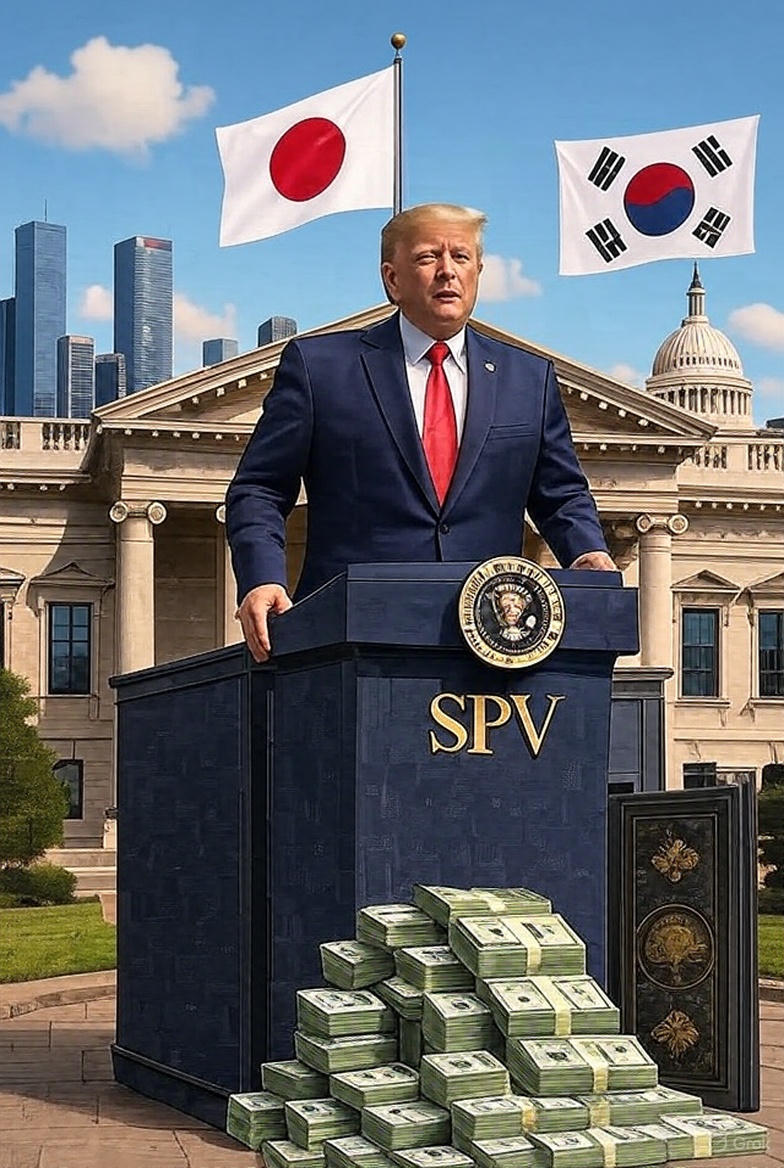An article in the Wall Street Journal yesterday talked about investments tied to President Trump’s trade deals with Japan and South Korea where they promise hundreds of billions and are secured by threat of tariffs. Japan agreed to $550 billion, and South Korea to $350 billion. The money would go into something called a special-purpose vehicle (SPV) controlled by the U.S. government (aka controlled by Trump). The SPVs would invest in private sector industries and share profits with the countries invested. Having any percentage of government ownership in private industry is socialist in nature and is similar to what is done in communist China. The Trump Administration is nothing but creative in circumventing congress.
These are government-to-government investments that will be entirely at the discretion of the U.S. government—meaning the President and his deputies. These are de facto sovereign-wealth funds administered without an appropriation or legislation from Congress.
The Wall Street Journal (free link)
With these SVPs the executive branch would manage huge funds without congressional oversight. The Constitution requires Congress to control spending. Bypassing this shifts more power to the president and violates the separation of powers.
Andy Laperriere, the head of U.S. policy research at Piper Sandler, a U.S. based multinational investment bank, gave details about the Japan deal.
The Administration will set up a special-purpose vehicle for each investment to be chosen by and controlled by the President or his preferred manager. Japan will have 45 days to pony up the cash. If Japan refuses, it could be hit with higher tariffs.
Tokyo would be a limited partner in this government-equity deal. Japan and the U.S. government will split the profits, if there are any, until an unspecified ‘deemed allocation amount’ is achieved. After that, the U.S. will receive 90% of the profits.
Japan would have to spend $183 billion a year through 2028 under its MOU, or 4.4% of GDP for each the next three years.
The Wall Street Journal (free link)
This structure will put the federal government in ownership roles. It will own stakes in private firms. This resembles socialism not capitalism and is similar to what is done in China. In China, the government uses funds like the China Investment Corporation to control key industries. The state directs capital to national goals. Trump’s proposal does the same under guise of national security.
Republicans spent four years criticizing Biden for his Green New Deal slush fund created by the Inflation Reduction Act. The only difference between this and what Biden did is at least Biden got the Democrats to pass it through congress.
There is no American precedent we can recall for giving hundreds of billions of dollars to the President to invest however he sees fit—and all with money raised by using arbitrary tariffs to coerce allies to ante up, or else.” Republicans criticized Biden’s green-energy funds as a “slush fund.” But those had congressional approval. This does not.
The Wall Street Journal (free link)
Given Trump’s shotgun approach to governing the whole proposal could be a red herring. Pledges mean nothing. Foreign countries can promise the moon while they wait out Trump’s term only to renege once he’s out of office. Trump promotes these deals for headlines so he can claim he made the best deals in the history of the world.
Japan and South Korea may be betting that the Supreme Court will strike down Mr. Trump’s unilateral tariffs, in which case the pressure to pay hundreds of billions of dollars might ease.
The Wall Street Journal (free link)
If Trump’s proposal for SVPs funded by foreign governments is real it stinks of socialism with risks of corruption and central control. It copies the Chinese model and moves us away from free markets. This should not be allowed without congressional approval.
